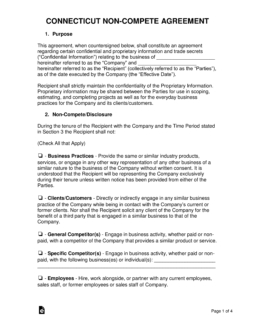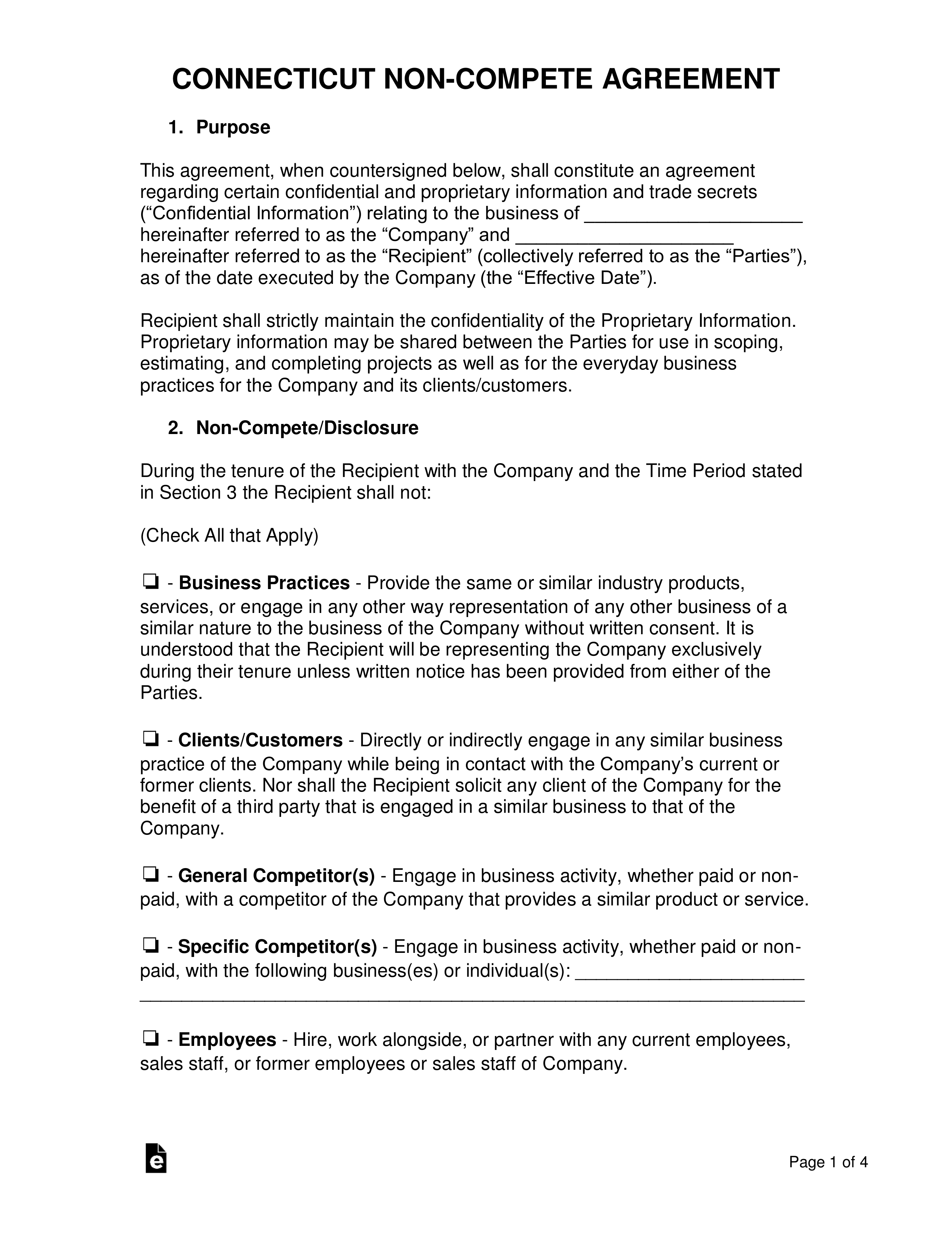Updated February 29, 2024
A Connecticut non-compete agreement restricts an individual from working in specific professions. It is recommended that the non-compete should be limited by geography and its time duration. For employees, there are restrictions against certain occupations such as attorneys, broadcast employees, homemakers, physicians, and security guards.
Laws
Legally Enforceable?
Yes, a non-compete is legal in Connecticut except for:
- Attorneys. An attorney is not eligible to enter into a non-compete.[1]
- Broadcast employees. No individual employed by a broadcast company (cable and radio stations) may enter into a non-compete. Any person that has had their rights violated under this section may seek damages and attorneys’ fees.[2]
- Homemaker, companion, or home health services. Such professions are prohibited from entering a non-compete.[3]
- Physicians. A physician may not be bound by any agreement that restricts their right to practice medicine.[4]
- Security guards. A security guard with the classification of #339032 in the Bureau of Labor Statistics is not allowed to enter into a non-compete unless they have been made aware of trade secrets.[5]
Continued Employment
Continued employment is not sufficient consideration for a non-compete. The employee must have additional consideration which may include:[6][7]
- Increased compensation;
- Promotion of improvement of title; or
- Employment in a different capacity.
Maximum Term
A term of five (5) years has been honored in the 3 court cases.[8][9][10]
Time and Geographic Area
It should be noted that Connecticut views non-compete’s time and geographic restrictions together.[7]
Therefore, if an employer is to enter into a non-compete for five (5) years, the geographical area should not extend beyond the State.
Blue Penciling Allowed
A non-compete is allowed to be modified by a Connecticut court if the agreement includes a severability clause or gives a court the right to modify.[11]
Furthermore, a non-compete was considered unenforceable for an overbroad geographic area when no severability clause existed allowing a court to blue-pencil the agreement.[12]
Sources
- Rule 5.6
- Sec. 31-50b
- Sec. 20-681
- Sec. 20-14p
- Sec. 31-50a
- Torrington Creamery, Inc. v. Davenport (1940)
- Van Dyck Printing Co. v. DiNicola (1993)
- May v. Young, 2 A.2d 385 (1938)
- Scott v. General Iron & Welding Co (1976)
- Ives Bros., Inc. v. Keeney (2009)
- Gartner Group Inc. v. Mewes (1992)
- Braman Chem. Enters., Inc. v. Barnes, 2006


